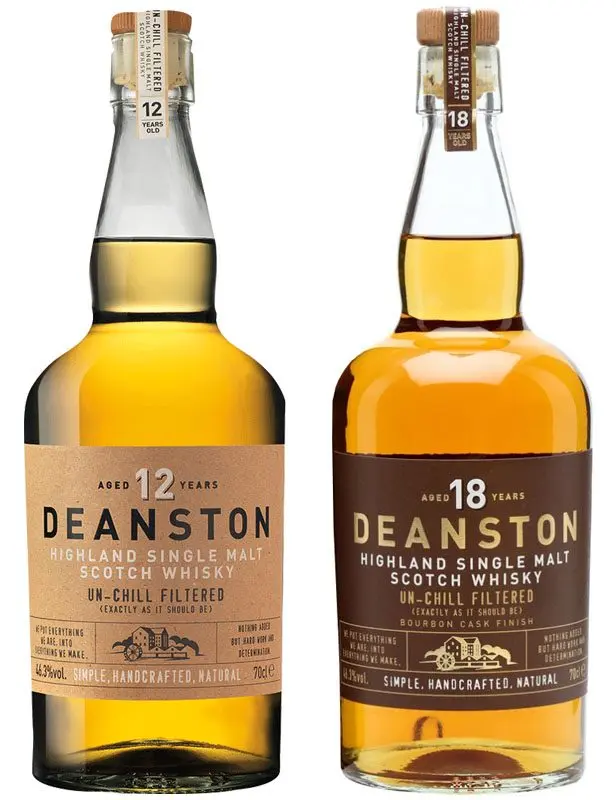Contents
Deanston is a brand of single malt Scotch whiskey that combines the traditions of two regions of Scotland – Highland and Lowland. The distillery produces drinks with an age of 12 to 25 years, which are distinguished by a mild taste with characteristic citrus tones. The company’s capacity is designed to produce 3 million liters of whiskey per year, some of the products are used in blends. The plant belongs to the Distell group of companies.
Historical information
Until 1966, the site of the Deanston plant was a cotton mill designed by Richard Arkwright, a famous British inventor of industrial machinery. Built in 1785, the mill was located on the River Tate, whose waters set the millstones in motion. Over time, a village grew up around the industrial complex, called Deanston.
By the 60s of the XX century, the cotton industry in the country fell into decay, so it was decided to organize the production of whiskey on the basis of existing buildings. As many as three large UK companies invested in the conversion, which subsequently founded Deanston Distillers Ltd. The reconstruction cost a high sum of 300 thousand pounds sterling at that time. Three floors of the factory had to be demolished and the weaving shop converted into a whiskey cellar.
The grand opening of the Deanston distillery took place in January 1967. The first whiskey was bottled four years later under the name Old Bannockburn. In the same period, a blended Teith Mill was released. Both brands were sold by the box at kiosks set up at the Blair Drummond Safari Park.
In 1982, the lines were temporarily mothballed due to the general crisis that engulfed the industry. The distillery reopened nine years later and has only grown in bottling ever since. In 2000, the company received a certificate for the production of organic whiskey. Since 2013, the plant has been owned by the South African company Distell Group.

Raw materials and production
The old Porteus mill has been in good working order since its renovation in the 60s and is used to grind barley. The water comes from the Tate River, which flows next to the distillery. The wort boiling tank is designed for 11 tons of products. Fermentation takes 100 hours, which is about a third more than usual. At this time, the future whiskey is saturated with esters and acquires a bright fruity aroma.
The plant has four stills made of copper with round intermediate elements, which contribute to a better separation of alcohols. The distillation process is manually adjusted by the employees of the enterprise. The output strength is 63,5%. Whiskey matures in European and American oak barrels from bourbon, brandy and sherry.
Awards
The brand has won gold medals in competitions:
- The Spirits Business, Лондон – 2016;
- San Francisco World Spirits Competition, San Francisco – 2017;
- World Whiskey Awards, London – 2017;
- International Spirits Challenge, Лондон – 2017;
- International Wine & Spirit Competition, Лондон – 2017, 2018.
Interesting Facts
- The mill, built in a cotton processing factory, was described in a statistical report as the most advanced mechanism in the British kingdom. The equipment retains its reputation to this day – since the 60s it had to be calibrated only twice.
- Deanston is the only plant in Scotland with a hydroelectric power plant. 25% of energy goes to the needs of production, and the rest goes to local power grids.
Types of whiskey Deanston
Deanston Aged 12 Years, 46,3%
The flagship product of the company is a light golden whiskey with the aroma of meadow herbs, malt and heather honey. The taste is creamy and moderately sweet. Ripe fruit, vanilla, oak and barley sugar stand out. The finish has mineral and spicy notes. Medium length finish with hints of wood, lavender and sweet toffee.
Deanston Virgin Oak, 46,3%
Light amber colored single malt whiskey is aged in American oak casks. The aromatic bouquet mixes white wine, lemon zest and apples seasoned with nutmeg. The palate is dominated by candied fruit and heather honey with woody and malty notes. At the end, oak, white bread and creamy toffee are felt.










